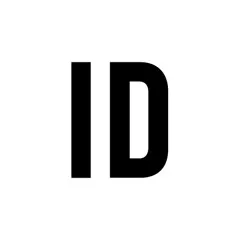If you see ID next to a track name it can be frustrating as you may want to purchase that track and support that artist, or you just really want that track in your personal library because it’s a banger. Sometimes that is not possible, and it could be for a number of reasons. “ID” is short for “Identification” so when you see ID it basically means the identity is unknown at the point of writing. There are actually a few reasons why a DJ chooses not to reveal the name of a track.
Here are some examples:
1. Host is testing out their own material and ideas. Sometimes i might play a track i’ve made that i’m not sure i’m even going to release. I may just want to see if there’s any reaction on twitter (during the radio show) or the dancefloor. If there isn’t much i may decide to completely scrap it and start over, or use a part of it for a future remix… If the host identifies it as one of their songs it get’s ripped to youtube and becomes a topic of discussion “why didn’t you release it?” “why did you change it so much” “why did you use part of your own track for a remix of that other track” and so on… keeping it ID reduces those questions and keeps things simple.
2. DJ is not supposed to have the record. In some cases a track has been promised to another A-list DJ for a compilation exclusively, this means the dj will want to keep it very secret to keep it a suprise of the CD tracklist release. If he/she finds out the song is being played by another dj on a radio shows he/she may not choose it for the CD compilation in favour of something that has yet to be played by anyone. By playing it as ID the dj can hide the fact that the track is being played, this also shows respect for the DJ who is paying for it to be on his CD and allows him/her to be the one to announce the name, this keeps his radio audience happy with fresh new tunes and the DJ making the compilation still uses it for his tracklist. Win/Win.
3. Track is not signed. If i get a track that i’m trying to sign i of course want to beat other labels to signing it, so while i might also test it out on the show i don’t want to advertise what it is as other labels may swoop in and sign the record from under me. ID solves this.
4. Artist has a song out at the same time. A lot of artists/labels don’t want people to feel like the song they are buying is not the latest one. If i play a record by an artists and tracklist it, but that artist has just released a track the same week, people naturally feel like the track they just bought is no longer the newest and they may choose to wait for the next. The focus on the single that’s out is sometimes lost if there’s other singles by the artist floating around. ID solves this.
5. Spare the producer being put on the spot. if i hear something by for example Myon and Shane54 on ASOT that i’ve never heard you can bet i’m emailing them right away. If it’s listed as ID then i’m not, this spares them the hassle of having to say no to 30 people for a track they’ve promised exclusively for an upcoming compilation CD for example and simply can’t give out. ID solves this
6. Building Hype. Sometimes the artist/label want to build some hype by getting people talking about a track without knowing who made it. The anticipation and speculation can help hype up a song before it’s released.
1001tracklists is your best friend. If something is listed as ID – chances are someone knows who made it or at least knows the song title. You can always drop in there to take down the metadata and research the release date of that track or even pre-save it yourself!





